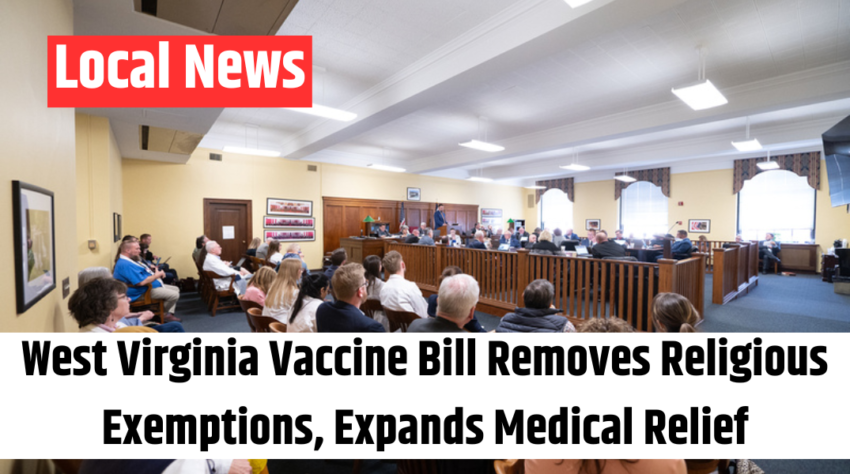West Virginia lawmakers have been debating significant changes to a proposed bill regarding school vaccination exemptions, shifting its original intent. The House Health and Human Resources Committee recently amended the bill, removing provisions that would have allowed parents to opt out of immunization requirements based on religious or philosophical beliefs.
Shifting the Focus to Medical Exemptions
Before the legislative session, Gov. Patrick Morrisey had voiced support for allowing religious exemptions for school vaccinations, aligning with the majority of U.S. states. Currently, only California, Mississippi, and West Virginia prohibit both religious and philosophical exemptions. Under existing West Virginia law, students must provide proof of immunization against diseases such as measles, mumps, rubella, polio, and hepatitis B unless they have a medical exemption.
The Senate initially passed SB 460, which aimed to introduce religious and philosophical exemptions. However, the bill stalled in the House as lawmakers considered revisions. Meanwhile, the state Department of Health issued a public advisory warning that a traveler at Dulles Airport may have exposed some West Virginians to measles, highlighting the risks of loosening vaccine requirements.
Lawmakers Express Concerns and Support
During discussions, some lawmakers opposed the changes, arguing they infringed on parental rights. Delegate Chris Anders, R-Berkeley, sought clarification on whether the amendment eliminated religious and philosophical exemptions. “If I’m reading this correctly, the amendment removes those exemptions—am I correct?” he asked. The answer was yes.
Also Read – Police Recover $70K in Stolen Trucks, Arrest West Virginia Couple
Anders strongly opposed the revision, calling it a violation of personal freedoms. “We are free people, not subjects of the state. The government does not own our bodies or our children’s bodies. This amendment is an assault on liberty and parental rights,” he said.
Other legislators, while acknowledging the removal of exemptions, emphasized that the bill improves access to medical exemptions. Delegate Ian Masters, R-Berkeley, expressed disappointment that religious and philosophical exemptions were scrapped but saw value in the strengthened medical exemption process. “I would have liked to see broader exemptions, but this bill at least fixes a broken medical exemption system,” he stated.
Delegate Michael Hite, R-Berkeley, agreed, noting that testimony from experts indicated the existing medical exemption process was flawed. “Whether or not we wanted religious or philosophical exemptions is beside the point now. What we’ve done here is make sure that people who truly need medical exemptions can get them,” Hite explained.
Divided Votes and Public Health Concerns
Delegate Mike Pushkin, D-Kanawha, took a mixed stance, voting in favor of amending the bill but ultimately opposing its passage. “This version is better than before, but I still think it’s dangerous,” he remarked. Pushkin argued that West Virginia’s strong vaccination laws have kept infectious disease outbreaks at bay, unlike in states that have loosened their regulations.
“One of the things we actually lead the nation in is strong public health laws, particularly childhood immunizations. You’re not seeing outbreaks of measles or rubella here, like in states that weakened their policies,” Pushkin noted. “Why would we tamper with something that’s working?”
What’s Next?
With the committee’s revisions, the bill now moves to the full House of Delegates for further debate and potential passage. The final decision will determine whether West Virginia maintains its current strict vaccination policies or moves toward expanding exemptions in the future .
